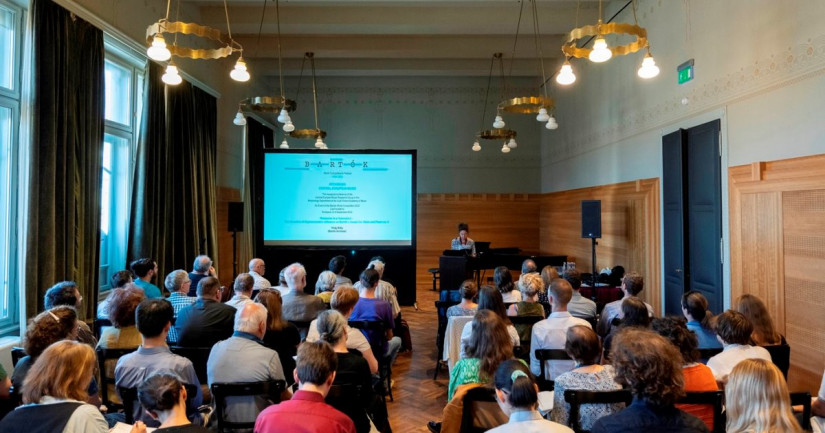Central European Music Research Group established at the Liszt Academy
One of the aims of the scientific workshop established at the Liszt Ferenc Academy of Music is to explore the past three hundred and fifty years of Hungarian music culture in a regional context. The Group organized its first international conference recently – as part of the Bartók World Competition –, where prestigious Hungarian and European experts presented their findings.
The main topics of the Central European Music Research Group, established at the Musicology Department led by Dr. Lóránt Péteri, encompass phenomena related to Hungarian-language culture, the former Kingdom of Hungary, the former Habsburg Empire, Central and Eastern Europe under Soviet influence as well as the different German-speaking countries, spanning a historical period of three and a half centuries. As part of this year’s Bartók World Competition for violinists, organized by the Liszt Academy, the Group held its first international conference entitled “Rethinking Central European Music.” The conference was organized by Anna Belinszky, Gergely Fazekas and Dr. Lóránt Péteri, staff members of the department.
photo: Liszt Academy/Dénes Erdős
Click on the photo to open the gallery.
The conference featured presentations from various fields of musicology that were connected to Central Europe. Renowned Hungarian and European experts presented their research, covering a wide range of musical phenomena of the past 200 years, emphasizing the work of Mahler, Bartók, Dohnányi and Kurtág among others, as well as the varied musical activities of individuals, communities and institutions. Conference participants also discussed the possible musical dimensions of Central European identity. The fact that several participants at the conference referred to other fields of art, facilitated the rethinking of Central European music history. Some speakers pointed out musical parallels in literary works, while the portraits of musicians featured in films was also the subject of innovative analysis.
Several presentations focused on the phenomenon of traveling singers and instrumental performers, and how these musicians' mobility fortifies the relations between the landscapes and cities of Central Europe. The issue of sound recordings was also discussed: the interwoven history of record companies and record distribution indicates that the dense network of Central European relations was not completely torn apart by the dissolution of the Austro-Hungarian Monarchy. Presentations dealing with the musical aspects of Transylvania and Polish-Hungarian relations brought to light the crucial universal and regional connections of musical history. The complex relationship of Russia and the Soviet Union with the Central European region was discussed in a new musical and cultural approach at the conference.
Lecturers from the Liszt Academy, representatives of other Hungarian institutions, as well as specialists from the United Kingdom, the Netherlands, Romania, Switzerland and Serbia, including the University of Cambridge, the University of Surrey, Royal Holloway (University of London), and Leiden University, gave presentations at the conference.
Central Europe is one of the most important concepts that we need to understand if we want to understand our history and identity – emphasized Dr. Andrea Vigh, president of the Liszt Ferenc Academy of Music, in her opening speech. She drew attention to the fact that the former is essential for understanding the Liszt Academy, founded one hundred and forty-eight years ago during the time of the Austro-Hungarian Monarchy. She added that the institution plays an extremely important role in the musical life of the region. The greatness of a higher education institution does not lie in the people leading it, but rather in all those professors and students who come up with new ideas and create new forums that connect people, the rector noted. “I am convinced that the Central European Music Research Group will become an institution within our institution, a new forum that develops new ideas and connects people,” she added.



